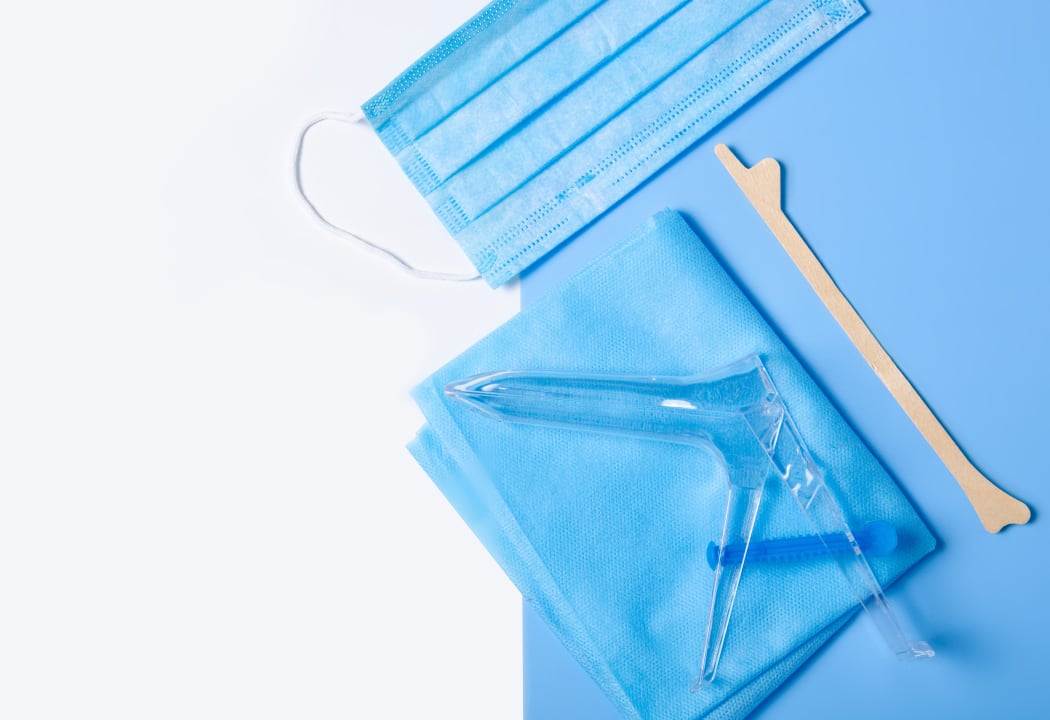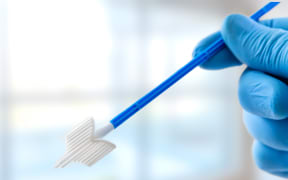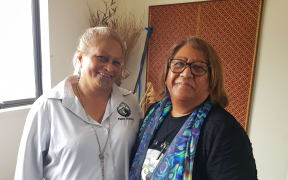Leaders of a kaupapa Māori-led cervical screening campaign are accusing the Ministry of Health of undermining an already successful programme.

Photo: 123rf
The ministry is proposing a new program to support wāhine Māori to get screened.
But Eruera Keepa said that was disappointing because the Smear Your Mea campaign had already done a lot of groundwork with Māori communities.
Smear Your Mea was set up by his sister, the late Talei Morrison in 2017 to raise awareness and promote advocacy and support through early detection, treatment and prevention of cervical cancer, for kaihaka, their whānau and their communities.
It has become a leading movement and voice in the cervical screening area. Morrison died in 2018.
Keepa, who has carried on the Smear Your Mea legacy, said he wanted the ministry to actively engage with them as Te Tiriti partners.
"I was disappointed to hear that there was a cervical cancer campaign targeting wāhine Māori due to be launched next month and we hadn't been included in any of those discussions," Keepa said.
"Furthermore, it's the lack of recognition and acknowledgement of the mahi that we've been doing on the ground for the last three to four years.
"We do this on the smell of an oily rag as well, we don't get funded, but we do it because we have a personal commitment to the legacy that Talei left us."
The kaupapa since its beginning had focused on working amongst whānau and Māori communities a kanohi kitea - face to face.
Morrison, who was a cherished leader within kapa haka, had gained wide-ranging support from whānau and the kapa haka community to help promote the importance of cervical screenings.
The kaupapa had utilised social media as a platform as well as health and well-being campaigns to further encourage others to get their cervical smear.
Early in the year, the ministry had invited Keepa to contribute to a joint Smear Your Mea and ministry cervical screening campaign, but Keepa said it was a diminishing experience.
Many of the concepts were already developed and Smear Your Mea was not being included actively but rather was brought in to advise the campaign, he said.
"To my horror and to my disappointment what I found out was that the concepts had already been developed, what was the point of me being there? Was it a way to tick that box in terms of useful engagement with the Māori cervical cancer campaign?
"I saw that as quite disrespectful to the mahi that we've been doing."
Keepa said left that campaign hui disappointed and extremely disheartened and from there he made it clear that Smear Your Mea did not want to be a part of anything the ministry was doing.
It was frustrating that their grassroots campaign that advocated to support early detection, treatment, and prevention of cervical cancer amongst wāhine Māori was continuously being ignored, he said.
"We've done a lot of work with Māori communities, with wāhine Māori in regard to raising awareness of cervical cancer, of regard to encouraging and inspiring the wāhine in our lives into action.
"We're underpinned by kaupapa Māori and the principles of kaupapa Māori.
"The kaupapa has helped us inspire the women in our lives into action and it's disheartening when we continuously get ignored."
In 2019 while submitting to the Māori Affairs Select Committee, Keepa expressed how the government needed to work closely with Māori health providers and Māori-led initiatives to address the failures of the health system.
In doing so, this could have supported Morrison and prevented her health struggles, Keepa said.
The ministry needed to establish a Te Tiriti o Waitangi-led partnership with the Smear Your Mea trust, he said.
It would be a partnership that would uplift kaupapa Māori led initiatives, support Māori health providers and encourage kaupapa that were by Māori, for Māori.
He wanted wāhine Māori to be involved in the campaign and for it not to be limited to a MOH agenda but instead led by a kaupapa Māori framework.
For him, the cervical screening campaign was a personal endeavour for him and all of Morrison's whānau and friends.
"We do this because we have a personal commitment, I've got a personal commitment and many of Talei's friends and associates and people who have been a part of this journey also have that personal commitment.
"At the very start the whole purpose of Smear Your Mea was to save one life, it was just to save one life and that would have been the measurement of success, but I know our kaupapa has gone beyond just one life, that's what drives us, that's what motivates us is to save lives" he said.
Ministry of Health responds
In a statement to RNZ, a Ministry of Health spokesperson said it was endeavoring to promote a campaign that supported wāhine Māori to return to regular cervical screening.
IT said its campaign advisory group previously met with the Smear your Mea trust chairperson as part of the wider advisory group meeting.
"The ministry and the campaign advisory group hugely values the work and ongoing commitment of Smear Your Mea in encouraging and supporting Māori women, of all ages, to participate in cervical screening.
"We acknowledge Smear your Mea as a respected and successful brand among Māori communities. We are committed to continuing to look for opportunities to work with the trust in the future."
It said the campaign hoped to include a strengths-based, positive, and empowering approach to engage and empower wāhine Māori.
The ministry said it was actively working alongside wāhine Māori through an advisory group.
"The NCSP campaigns continue to be supported by an advisory group established in 2019.
"This group is led by wāhine Māori who are experts in cervical screening and work with wāhine Māori who use the service. The group provides stewardship over the campaign and is guided by research and the voice of Māori women.
"The principles developed for the campaign by this advisory group were informed by the Mana Wahine framework and also align with the Ministry of Health Whakamaua Māori Health Action Plan."





